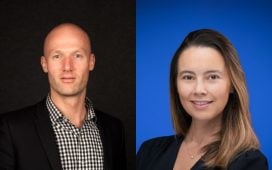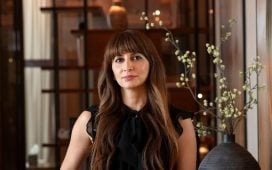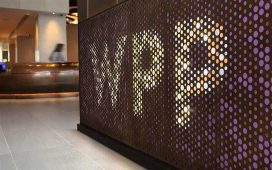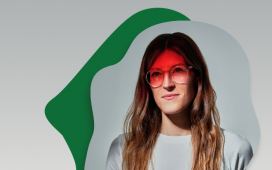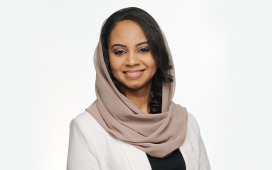By Leila Hamadeh, co-founder & chief executive officer, Finyal Media.
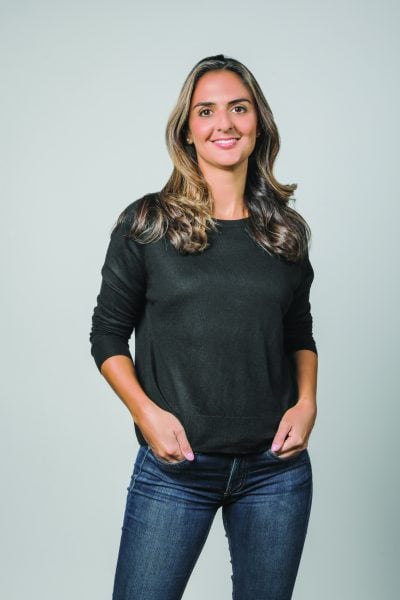
Podcasts have come of age. If anything, the pandemic has been a catalyst for growth in the Arab world: most people know someone who has started a podcast during the pandemic. But whilst there has inevitably been a huge variance when it comes to quality, what it has done is push the podcasting scene further up the agenda.
Like any industry receiving interest, the podcast scene is growing fast, and it’s developing at pace. Arabic music streaming service Anghami, for example, has become the first Arabic technology firm to list on Nasdaq at a valuation of $220m, while Deezer has a fast-growing library of Originals in Arabic for the region. And this is against an overall background of rising listenership both in the Middle East and on a global scale.
Connecting with the disconnected
Indeed, our own growth at Finyal Media is evidence of the growing popularity of podcasts in the region and our ability to capitalise on a gap in the market. Launching in 2019, we have come a long way in the past two years, establishing ourselves as an award-winning podcast network providing immersive experiences for Arab listeners, with hits such as 1001 Nights, Sindbad, Juha and The 40 Thieves. Before this, little existed to really connect with the Arabic youth in particular; the means of communication was outdated, and not relevant, and so we saw an opportunity to connect on a more meaningful level with fresh, original and authentic content. Acquiring seed funding to the tune of close to $1m has helped us accelerate our journey, with our audience more than doubling in size in the past year and more than 6 million downloads overall to date.
Brand-funded podcast storytelling
It was this approach that helped us understand the huge potential that exists via podcast storytelling for brands. Through this storytelling approach, which underpins our ethos, podcasts represent a hugely effective means to reach and engage audiences through a mobile-first strategy. Major brands in the region are already turning to the medium; indeed, we count Emirates NBD, Unilever and GMC as just some of our clients here, and we are creating storytelling content that connects with the listener on an altogether different level.
Ultimately, we are creating brand advocacy here, as podcasts allow for the potential to target very specific, niche audiences with zero audience wastage. You are not an accidental listener; you don’t happen upon a podcast – you have to seek it out at the point of interest – and this creates a very attractive ecosystem for brands to tap into. And by using a storytelling approach, we can create a very meaningful connection between both brand and listener.
Loyal communities
Our partnership with Unilever’s Miraa.me platform, for example, saw us create a series entitled, نفس ، خطوة ، مرآة (A Breath, A Step, A Mirror), which features powerful stories of real women from Saudi Arabia who have each written a letter to their younger selves. The stories are filled with hope, struggle and joy, and this aligns to the values of Miraa.me, which as a digitally-led platform represents the true faces, voices and values of women around the Middle East.
Another partnership we forged with Deezer saw us produce an Arabic podcast series entitled, نوماً هنيئاً (Sleep Tight), which features a collection of fairy tales to help listeners unwind and prepare for a good night’s sleep. This was the first time that an Arabic podcast had been produced that purely focused on sleep – and it was created at a time when many people were suffering from insomnia due to the pandemic, and long-term lockdowns.
Where to next?
So, although the community is still being built, the potential for brands to harness the power for podcasts is huge. Our focus on fictional storytelling and original content series is catering to the previously uncatered; it’s fulfilling a gap in the market that was otherwise empty, particularly in Saudi Arabia, Egypt and the UAE. And when it comes to brands, the audience appetite for podcasts is ripe; the trust factor is high, the engagement metrics are powerful and there’s the opportunity to speak to Arabic audiences in a way that truly resonates with them.
As we now come out of these few months and some of us move back into offices, whilst others stick to working from home, one thing’s for certain: how we communicate will never be the same again. We have to think differently, we have to find solutions to problems put in front of us, and the ways of old may not always be the best anymore. We’ve shown that as a sector, we can move at pace; it may no longer be business as usual, but communicating in smarter, more efficient ways, has just forced us all to up the ante.



